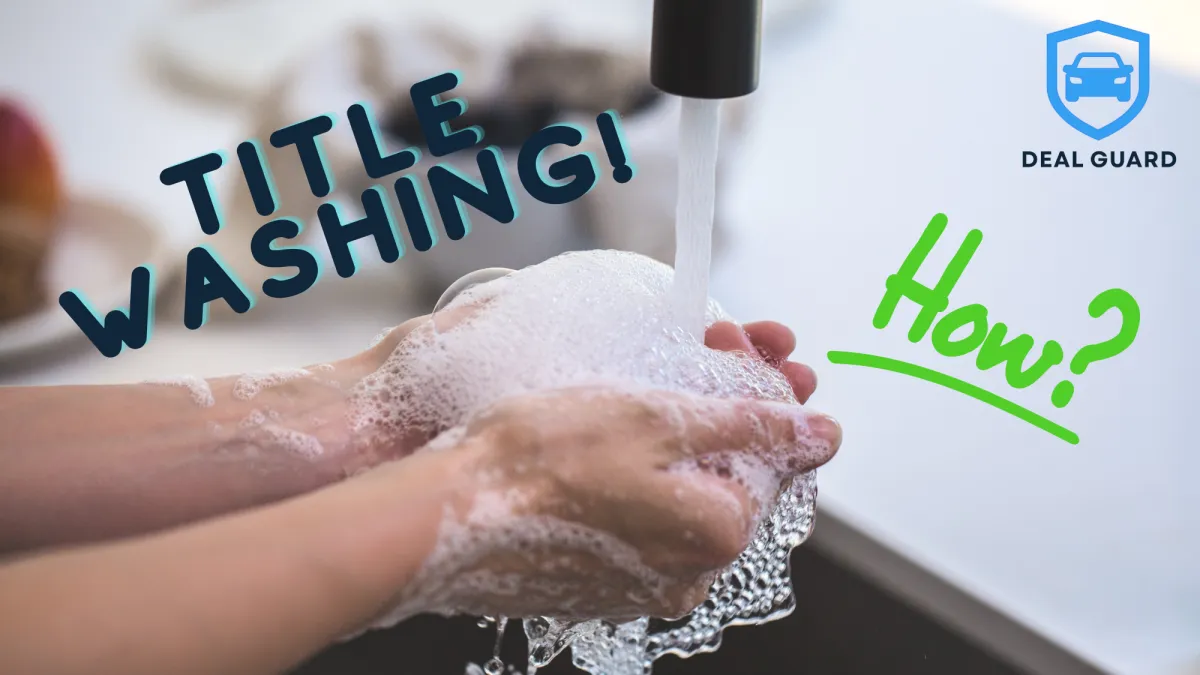
Title Washing – The Dirty Secret Hiding in Used Cars
Title Washing – The Dirty Secret Hiding in Used Cars
“I asked if it was a clean title… they said, ‘Yup!’ I just didn’t know they meant clean as in fresh out of the rinse cycle. 🧼😳” - Chase Jordan
Title washing is one of the dirtiest tricks in the used car world—and it’s more common than most people realize.
Cars that were once branded salvage, flood, lemon, or rebuilt are being moved between provinces or U.S. states to scrub that history clean.
Let’s break down what it really means, how to spot it, and how Deal Guard keeps you safe.
💡 What Is Title Washing?
Title washing is the practice of moving a car from one jurisdiction to another to remove or hide a negative title status, such as:
Salvage: Declared a total loss due to collision or theft
Flood: Water damage, often from hurricanes or severe flooding
Lemon: Multiple failed repair attempts under warranty
Rebuilt: Repaired after being branded salvage
Some provinces and states don’t recognize all branding types—or don’t report them at all—making it easy for shady sellers to “wash” a car’s bad history away.
🌎 Where It Happens Most
In Canada, title washing often involves cross-border imports from U.S. states with weak reporting laws.
Domestically, cars move from provinces like Alberta or Quebec (which have less consistent branding rules) into places like Ontario or BC.
In the U.S., common title washing hotspots include Mississippi, Wisconsin, and Vermont—where loose reporting rules make washing easier.
🧪 How It’s Done
A car is totaled in one province or state.
It’s auctioned to a third-party reseller.
The car is registered in a different region that doesn’t carry forward the title brand.
It reappears on a lot or online classified as “clean” with a suspiciously low price tag.
You think you’re getting a deal… until the water damage shows up in the footwell or the airbags don't deploy properly.
🔍 How to Spot a Washed Title
Missing service records before a recent registration
Rapid province/state changes in the past 12–18 months
Too-good-to-be-true pricing for the year/make/mileage
VIN shows accident or salvage history that isn’t reflected on the title
Pro tip: A washed title won’t show the damage, but the VIN never lies. Run it through multiple tools, not just one.
🛡 How Deal Guard Protects You
At Deal Guard, we don’t just scan a CARFAX and call it a day.
We use a multi-layered verification process:
✅ Run the VIN through multiple U.S. and Canadian databases
✅ Review insurance and auction data, not just registration history
✅ Inspect the vehicle for hidden signs of flood or structural damage
✅ Analyze price-to-market to flag suspiciously low offers
✅ Refuse any vehicle where the title, history, or VIN trail is incomplete
We’ve caught dozens of washed titles—and protected our clients from disaster.
😎 Final Word from Chase
Title washing is legal fraud in action.
Most buyers don’t even know it exists until they’re stuck with a lemon that was once underwater—literally.
At GetDealGuard.com, we expose shady tactics, investigate vehicle histories, and negotiate only with reputable, transparent sellers.
🎯 Think that used car is “too good to be true”?
Let Deal Guard verify the VIN, history, and title before you sign. It’s what we do—because you deserve a clean car, not a cleaned-up mess.
